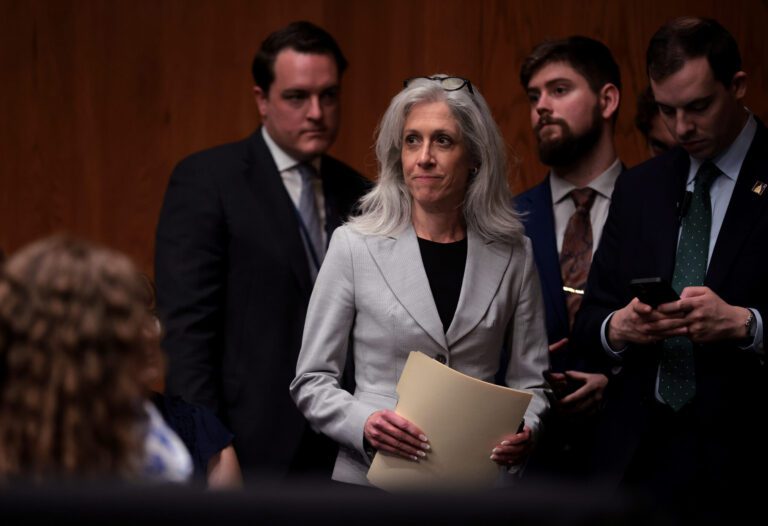CDC Director Susan Monarez Fired Amid Vaccine Policy Controversy
The sudden removal of Susan Monarez from her position as director of the Centers for Disease Control and Prevention (CDC) has sent shockwaves through the public health community. Just weeks into her tenure, Monarez was dismissed by the White House after she reportedly refused to comply with demands for her resignation from Health and Human Services Secretary Robert F. Kennedy Jr.
Key Developments Surrounding Monarez’s Dismissal
-
Refusal to Resign: Monarez, who took the helm of the CDC on July 31, faced intense pressure from Kennedy and other administration officials to align with controversial changes to the nation’s vaccine policy. According to a statement from White House spokesman Kush Desai, “Since Susan Monarez refused to resign… the White House has terminated her.”
-
Legal Representation and Integrity: In a counter-response, Monarez’s attorneys asserted that she had “neither resigned nor received notification from the White House that she had been fired.” They painted a picture of Monarez as a dedicated scientist committed to public health, emphasizing her refusal to endorse what they described as “unscientific, reckless directives.”
- Political Implications: The attorneys accused Kennedy of using public health for political leverage, particularly in relation to new vaccine policy reforms and the firing of officials who did not comply. They stated, “When CDC Director Susan Monarez refused to rubber-stamp unscientific… directives, she chose protecting the public over serving a political agenda. For that, she has been targeted.”
Conflicting Agendas within the Administration
Monarez’s short-lived role not only highlighted a clash between scientific integrity and political maneuvering but also underscored a shifting approach toward public health directives under the current administration. Key points of contention included:
-
Vaccine Policy Overhaul: Reports indicated that Kennedy pressed Monarez for days on whether she would support changes to the approval status of certain coronavirus vaccines, signaling a departure from established health guidelines.
-
Pressure to Resign: Following her refusal to fire senior staff members or endorse controversial policies, Monarez was urged by Kennedy to resign for allegedly not supporting President Trump’s agenda.
- Allies in Government: After resisting pressure, Monarez sought guidance from Senator Bill Cassidy, a Republican medical doctor with significant influence on health policy matters. Cassidy has publicly criticized recent HHS decisions, including drastic changes to vaccine research funding and the restructuring of the Advisory Committee on Immunization Practices (ACIP).
White House and HHS Responses
Following the termination, both the White House and HHS made official comments:
-
White House Reaction: Desai confirmed Monarez’s firing and reiterated that her perspectives on public health were not in alignment with the administration’s agenda, specifically its goal of “Making America Healthy Again.”
- HHS Statement: The Department of Health and Human Services acknowledged her contributions and thanked Monarez “for her dedicated service to the American people.”
Context of Vaccine Policy Changes
The backdrop to this controversy involves significant shifts in the landscape of vaccine policy:
-
Historic Appointment: Monarez was not only the first female director without a medical degree in over 70 years but also faced immediate challenges in an administration keen on altering public health strategies.
-
Vaccine Skepticism: The Trump administration’s previous decisions—like the inclination to remove certain vaccines from recommended schedules and the recruitment of vaccine skeptics for advisory positions—were pivotal in framing Monarez’s challenges.
- Emerging Threats: Amidst these changes, heightened threats to public health officials, including a tragic shooting incident at CDC headquarters, further complicated the environment.
Broader Implications for Public Health
Monarez’s ouster symbolizes a critical moment for the CDC and public health policy overall. The firings of other senior CDC officials, including the chief medical officer, suggest a broader shake-up in leadership. As the administration continues to navigate the controversies surrounding vaccine effectiveness and previous mandates, the future direction of public health policies remains uncertain.
- What’s Next?: With Monarez gone and new advisors in place, observers are left to question the implications for COVID-19 vaccine research, public trust in health authorities, and the overall strategy to combat future health crises.
For more on related public health policies and updates, visit CDC’s official website.


